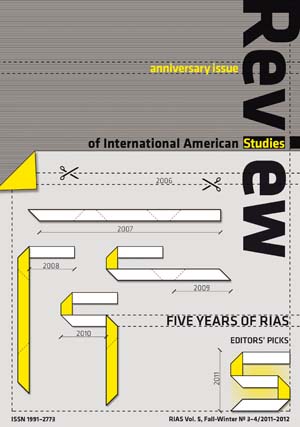IN THE NAME OF SECURITY
IN THE NAME OF SECURITY
Author(s): Amy KaplanSubject(s): Language and Literature Studies, Studies of Literature, Other Language Literature, Cultural Anthropology / Ethnology
Published by: Wydawnictwo Uniwersytetu Śląskiego
Summary/Abstract: In January 2001, the Bush administration started its reign with a neoliberal assault on the Social Security system, the last bastion of the welfare state. In his first major speech after the attacks of September 11 that year, the President announced the creation of the Office of Homeland Security. In January 2003, the White House turned it into a permanent Department, calling it ‘the most significant transformation of the United States Government since 1947’, the year the U.S.A National Security Act created the CIA. This governmental department was not the only significant transformation. The word ‘homeland’ was an unfamiliar way of referring to the American nation, an idiom not found in a traditional political vocabulary that includes national security, domestic security, and civil defense. These keywords, ‘homeland security’, have been changing not only the government but the contours of American nationalism and its relation to the world. The Department of Homeland Security is not only charged with protecting the nation from terrorism, but also with policing the borders of the nation, with its incorporation of the Immigration and Nationalization Service (INS). In addition, with the Federal Emergency Management Agency (FEMA) under its umbrella, the Department of Homeland Security was responsible for the disastrous disaster relief in New Orleans in the aftermath of Hurricane Katrina.This essay explores the ubiquity of ‘security’ in contemporary American political culture, which extends far beyond the working of the state. What is the relation of homeland security to the concept of freedom and to the language of empire? How do these terms coalesce in the more recent concept of homeland security? Social Security/National Security/Homeland Security. How are these concepts interconnected? What is the relation between the tremendous investment in the national security today, not only monetarily and institutionally, but also linguistically and conceptually, and the evisceration and impoverishment of language and institutions for conceiving and providing for human needs and social services? My conjecture is that within the logic of homeland security that question cannot be posed, because the meaning of homeland security works to eradicate the boundaries between military and social needs and between foreign and domestic policy. As the response to Hurricane Katrina showed, the politics of homeland security has made social security in the most basic sense impossible.
Journal: Review of International American Studies
- Issue Year: 5/2012
- Issue No: 3-4
- Page Range: 65-78
- Page Count: 14
- Language: English

